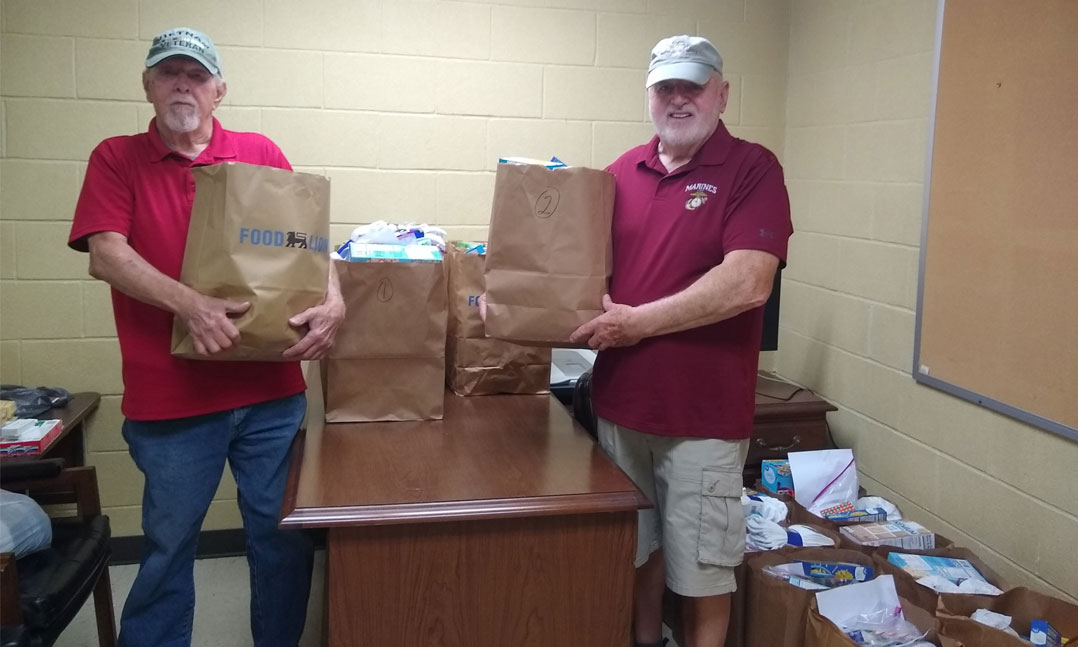In the spirit of VFW’s #StillServing campaign, a few members of VFW Post 6091 in Dillon, South Carolina, joined a local veterans nonprofit to help distribute groceries to local veterans in April.
Post 6091 members John Harlow and Jim Chavis joined Help For Veterans, a Dillon-based nonprofit organization created in 2016 to assist homeless and low-income veterans, which provided them with names and addresses of 14 local veterans in need.
 VFW Post 6091 members Jim Chavis and John Harlow carry groceries for distribution to veterans in need at the Help For Veterans building in Dillon, South Carolina, in April.Harlow, Chavis and the other volunteers drove around Dillon, about 68 miles northwest of Myrtle Beach, South Carolina, delivering grocery bags filled with canned and boxed foods, as well as socks, paper and hygiene products.
VFW Post 6091 members Jim Chavis and John Harlow carry groceries for distribution to veterans in need at the Help For Veterans building in Dillon, South Carolina, in April.Harlow, Chavis and the other volunteers drove around Dillon, about 68 miles northwest of Myrtle Beach, South Carolina, delivering grocery bags filled with canned and boxed foods, as well as socks, paper and hygiene products.
“The purpose is to get the grocery bags to the homes, but we also try to spend a little time with the veterans,” said Chavis, who joined Harlow and others in presenting two grocery bags to each of the 14 veterans. “We always thank them for their service, confirm contact information, ask how they are doing and if anyone is checking on their welfare.”
On one of the deliveries, Harlow entered the home of a World War II veteran on the precipice of a century. The 99-year-old veteran, whom Harlow says lives alone despite health complications, presented an unusual air of positivity that stayed with the VFW member.
“I was so honored to be with him and listen to his war stories that seemed so fresh in his memory,” Harlow said. “I asked him if anyone checked on him, and he remarked that the Lord checks on him every day.”
With several other Post 6091 members already on the Help For Veterans committee, both Harlow and Chavis added that they intend to continue to help by distributing groceries to more veterans in need.
“Some veterans have found it difficult to transition from military service back to civilian life,” Harlow said. “Some are getting older and others are dealing with mental health issues or physical health problems after their service. We are very pleased to help all these veterans where we can.”
For Chavis, the experience of delivering food and supplies to fellow veterans in need, feeling and hearing their gratitude seep out over small talk, fueled his need to return.
“I heard a lot of [veterans] say thank you,” Chavis said. “It made me want to do more.”